#political ideologies
Text
Let’s make something quite clear.
NO political ideology is sexy!
Even if it is a perfectly sound one!
I’m not a leftist because it’s “sexy”. I’m a leftist for very good reason, sure.
But it’s not because I find leftist ideologies to be sexy! (Some of them are fucking stupid! How else do you explain tankies?)
No political ideology is sexy! No matter how sound or unhinged.
And it sure as shit isn’t an aesthetic either.
Shallow superficial bullshit.
What the fuck.
Who the FUCK says that shit unironically?!
It just makes you sound deranged.
Otherwise you’d have to be taking the piss!
And it isn’t gonna persuade people either.
So don’t do it!
Ever!
#dougie rambles#personal stuff#vent post#political crap#ideology#political ideologies#fucking hell#WTF#sick shit#sex appeal#or lack thereof#why though#what#no context#don’t ask#fuck’s sake#fuck tankies#leftism#fucking what#derangement#brainrot#brainrot in action#reblog this#aesthetic#commodification#i feel sick#oddly specific
23 notes
·
View notes
Text
PEOPLE DONT REALISE THEY WANT COMMUNUSM (BARBIE REFERENCE)
In the movie the males took control over the goverment (which is in this case the working class) for their advantage, oppressing and controlling what the females wanted
basically in this example the capitalists are the males and the working class are the females.
IN THE REAL WORLD CAPITALISTS TOOK OVER THE WORKING CLASS FOR THEIR ADVANTAGE OPPRESSING AND CONTROLLING WHAT THE WORKING CLASS WANTS
In the barbie movie, the females realized they had all the power and that's how they freed Barbie-land
See???? In Marxist Ideology, its about the working class realizing they have all the power they should free themselves from the capit sts
#communist#communism#marxist theory#marxist#marxist leninist#marxist feminism#marxism#karl marx#marxism leninism#trotskyism#barbie#barbie movie#political ideologies#examples of capitalists being shit#people see that communism is the way they just dont look close enough
32 notes
·
View notes
Text
I refuse to believe that any line in Barbie was just a throwaway joke, I firmly believe that every line of dialogue was meticulously crafted by Gerwig and Baumbach.
Spoilers for Barbie below the break.
That said, I can't get Ken's line out of my head, "To be honest, when I found out the patriarchy wasn’t about horses I lost interest."
This scene is a turning point for Ken's character, and while it a great joke performed perfectly by Ryan Gosling, it also serves as a deeper truism for many ideologies, not just the patriarchy.
So many things seem cool on the surface (I get to ride horses and cool cars and drink beers with the bros in my Mojo Dojo Casa House) until you realize that the idea or concept you are embracing, when carried out in full, inevitably screws over somebody else, usually someone you love (i.e. all the Barbies).
So many people are too excited about the horses to notice the douchebags they will become. And even once they realize that their newfound ideology isn't all it's cracked up to be, they're "in too deep" and pride and peer pressure make it hard to turn back. Suddenly you "aren't manly enough" if you don't do everything that all the rest of the guys do, so you just play along, making yourself more miserable the longer you do nothing.
Only when you break out from devoting your entire personality to a single idea can you truly find your own personal identity and become the Ken (or Barbie or Allan) you were Made For.
It may seem noncommittal, but Oppenheimer's practice of reading about and engaging with other worldviews is the healthiest way to decide for yourself who and what you want to be.
#thank you for coming to my ted talk#barbie#ken#kenergy#To be honest#when I found out the patriarchy wasn’t about horses I lost interest.#i am kenough#I'm just Allan#margot robbie#ryan gosling#greta gerwig#noah baumbach#yes my brain has been broken by these movies and i love it#barbenheimer#oppenheimer#patriarchy#communism#feminism#society#political ideologies
22 notes
·
View notes
Text
Are westerners familiar with Bashar al Asad and Zin Abidin Ben Ali as much as they are familiar with Saddam Husein ?
No , because even though Bashar and Ben Ali are dictators torturing their own people, they're not much of a threat to the westerners' colonial goals .
Unlike Saddam Husein, who wanted to unite Arabs and create a common currency for them and who had beem making progress in that regard .
He invested in his country's education as well as other Arab countries by sending them aid in a way that was very limiting the the brain drain .
That's the real reason he was killed , these are some of the real reasons for the American ( against Iraq) war was waged .
Not because of democracy, not because of " nuclear weapons " ( that weren't even there)
It was because of riches and power .
#free gaza#free palestine#israel palestine conflict#white phosphorus#hamas are freedom fighters not terrorists#operation iraqi freedom#iraq war#العراق#don't forget#usa#murica#uncle sam#america#politically correct#political ideologies
12 notes
·
View notes
Text
My thoughts on Anarchism
Idk if this already has a name (I looked into the terms and definitions but it's all too confusing)
I am autistic and I don't know too much about other anarchist ideologies, please be polite ^^
I wish there could be a democracy, but nobody is in charge, like everyone meets together, vote, and then make a mutual agreement to not fuck around. Just trade and get your own shit, and if some little shithead happens to be roaming, project karma onto them.
Like not laws, but everyone just makes their own rules and defends what they do. No power or leaders, just people being equal humans and doing what they do.
What do you guys think about this?
8 notes
·
View notes
Text
Breaking down Six of Crows: Matthias Helvar, sexism, genocide, and ideology
Matthias might just be the most misinterpreted crow, and I'm here to talk about this.
**SPOILER ALERT **
TW: death of parents & siblings, harmful ideologies, religion gone wrong, genocide
The Drüskelle
Matthias Helvar is a Drüskelle. Drüskelle are known to be more than critical of the Grisha's abilities, they believe that Grisha represent a kind of human mutation, that they shouldn't exist and even rank them as something far inferior to humans and even animals. They think of Grisha as something so dishonorable that they aren't even worthy of a fight. Important to mention here is that the Drüskelle are people whose morality is based on religious structures. The Drüskelle train their soldiers under the protection of the god Djel, who is said to approve of their doings. They train hunting down Grisha and claim to give them a fair trial, but as both Matthias and the readers realize in the course of Six of Crows, this is rarely the occasion: The Drüskelle burn the Grisha on pyres. There's nothing fair about that. Also, the parallels to problems that are indeed very real and rooted in our own world get even more clear, for don't we live in a world where people were burned on pyres by religious people?
Matthias, a "brave, miserable boy, fed on hate"
So I suppose we can all agree: Drüskelle = bad. Does that equal Matthias = bad? Let's see.
We get to know Matthias as a Fjerdan, a Drüskelle, trained by and for Drüskelle to further their cause. At the beginning of his story, we get to know him as one of the front-runners of the Drüskelle, one of their best soldiers. At the end of Crooked Kingdom however, we see a completely different picture of the young man who might be the one who went through the most significant character development. He goes from being an ideologically influenced misogynist to a man who wants to destroy this very ideology and eventually falls vicitim to it himself. For people forget that Matthias might be a Drüskelle, but he hasn't always been.
Matthias grew up with his family, his mother, father and little sister. One day, however, when Grisha burned down Matthias' home village to the ground and only Matthias remained, he joined the Drüskelle. Let this sink in: A young boy didn't just witness his home burning down, but also the brutal murder of his own family. There is – there has to be – a deep-seated trauma of the loss of father, mother, and sister as well as the fire itself. Matthias is an orphan, all possible caregivers or confidants are dead, he lost them at an extremely young age. Instead, a man named Brum takes their place. A man who takes Matthias in with the Drüskelle and exploits his young naivety and his hurt, his mourning, and anger at Grisha, who murdered his family. Matthias is particularly vulnerable to the disgraceful ideology of the Drüskelle, which Brum shamelessly exploits, especially due to his extremely young age and the enormous trauma of the loss of his family.
In the claws of ideology
Matthias' tragic backstory can't and won't be the excuse for his actions, for he has done great harm, there is no question. But the point of this post is not to paint a picture of a saint, nor is the point of Matthias' character (development) to excuse that very behavior. I strongly believe that the point of Matthias is an even bigger ambition: Matthias is an example for how social ideologies work and that there is no need for an active decision to be or become discriminatory. Without being aware of this, Matthias has dedicated his entire life's work to a cause whose goals lie in genocide.
Even after he started questioning the ideology that raised him – mainly influenced by his complicated relationship with Nina Zenik - and even after turning against Brum, his mentor and the person who took him in with the Drüskelle, the thought patterns that were anchored in his brain for a long time don't disappear all of a sudden:
"They're the enemy, said a voice in his head, and he wasn't sure if it was Commander Brum's or his own."
It takes work and empathy and understanding to slowly get rid of these influences that were part of Matthias for the majority of his life. Sometimes these thought arise, but Mattias becomes self-critical and he learns to understand the life of Grisha and the limitations and fear under which they live. As the Crows help Nina's Grisha friends safely leave Ketterdam without getting caught by Drüskelle, Matthias is held up a mirror:
“It seemed an extreme precaution in what was supposed to be a neutral city, but perhaps the Ravkans had been forced to take extreme measures to protect their citizens. 'Because of people like me.' Matthias had been a hunter, a killer, and proud to do his job well.”
Matthias feels shame, but while he must and should be held accountable for his past actions, the reason for this lies much deeper than with this eighteen-year-old young man: it lies in societal ideology and long-term nurturing of institutional hatred against a specific group of people.
The books also criticize those justifications for discrimination that have their roots in religion, as well as the charismatic leaders of such ideologies, which exploit the naivety of (young) people instead of promoting independent and critical thinking:
“[Brum had] taken a brave, miserable boy and fed him on hate. He'd silenced Matthias' conscience with prejudice and the promise of a divine calling that was probably nothing more than the wind moving through the branches of an ancient tree.”
However, the entire belief system is not condemned or rejected, but a change of perspective is offered: instead of regarding the Grisha as unwanted, as something that should not exist in Djel's eyes, Matthias begins to see these magical people as a gift from a divine power. In addition, he learns that the motivation of Brum, his leader, lies less in a selfless approach to protecting his people and more in a thirst for power and jealousy of the Grisha's supernatural powers.
The odd one out: Matthias' story as counterweight to the crows
Why all of this, though? Why am I so insistent on understanding Matthias' story and interpreting his character in regard to societal structures? It is because Six of Crows offers great representation of those exact structures. Leigh Bardugo has been praised a lot for the diversity in her novels and even though both me and her agree that her books cannot be the pinnacle of diverse YA literature, it is indeed a start.
What makes Matthias important, both as a standalone character but also in regard to his colleagues, is the following:
In contrast to all the other crows, Matthias initially takes on the role of the oppressor instead of being oppressed himself. With this character and his role – especially in a group of teenagers who are all affected in some way by social discrimination – Leigh Bardugo creates a perspective that delves deeper into the underlying causes of discrimination. Bardugo doesn't just show diversity and representation in her books, she is offering an actual explanation for it. Using the character of Matthias, she is explaining how ideologies get formed and especially – and this is the important part – that those who fall for it can indeed change. It is also worth mentioning here that Matthias is the only one of the six main characters to find himself in a position of absolute privilege: he is a white, able-bodied male who can be assumed to be both straight and cisgender. As the only character whose tragic story serves to illustrate discrimination and ideologies, he is in no way influenced by social oppression himself. And that makes him a valuable character, for he doesn't represent marginalized groups, but the very reason for why there are groups that are marginalized.
Thanks for coming to my ted talk, this has been on my mind ever since I started writing my thesis about exactly this.
#soc#six of crows#crooked kingdom#matthias helvar#leigh bardugo#shadow and bone#representation#social issues#political ideologies#religious ideologies#grishaverse
30 notes
·
View notes
Text

I just love drawing personifications lmaoo :D
[It's the Soulism ideology btw!]
#art#drawing#traditional art#colored pencil#personification#political ideologies#Soulism#my art#oc art#oc
4 notes
·
View notes
Text
what are some inventories/ questionnaires that measure political attitudes or political orientation?
Hello, I am working on my master's dissertation, and I need help with identifying a quantitative tool that measures a person's political orientation/ attitudes. Would be great if y'all can help me with finding a tool and getting access to it. So far, my search has gotten me to dead ends and tools that cannot be applied to the Indian context.
#studyblr#university#college#psychology#psychometrics#political ideologies#dark academia vibes#dark academia#student life#study blog#studyinspo#politics#indian politics#bharat#questions#academia#women in stem
2 notes
·
View notes
Text
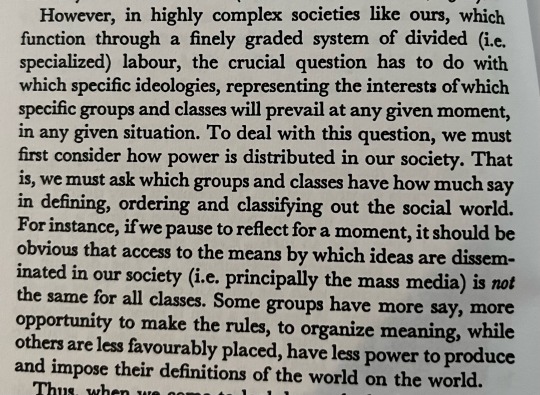
Excerpt from Subculture: The Meaning of Style by Dick Hebdige
#photo#quote#culture#subculture#leftist ideology#political ideologies#media#society#socialist#marxist#marxism#academic#academia#read#bookblr#studyblr#politics#political#class structure#class struggle#labour
53 notes
·
View notes
Text

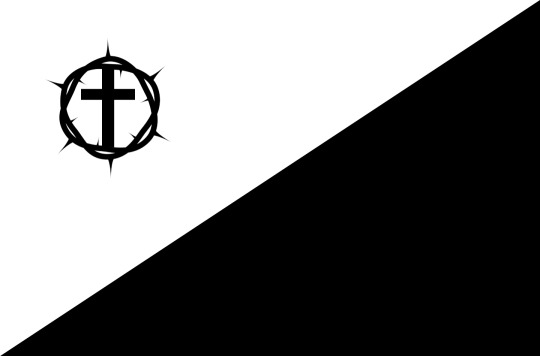
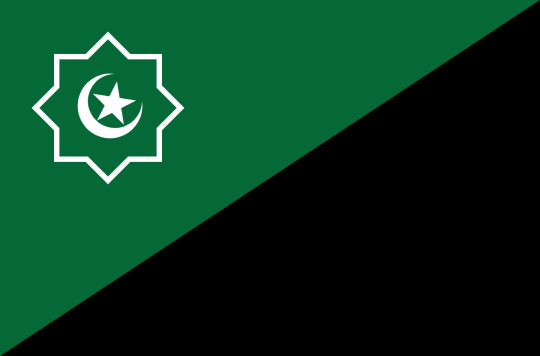

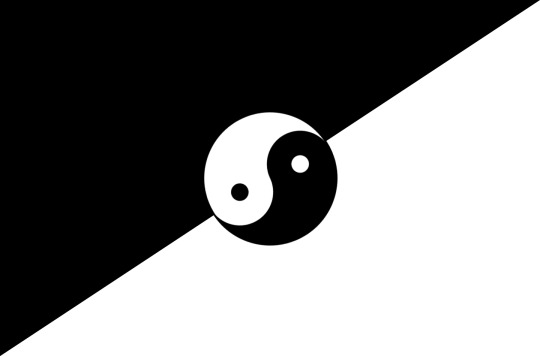
A few flag re/designs of various religious anarchist schools of thought
Buddhist Anarchism
Christian Anarchism
Islamic Anarchism
Jewish Anarchism
Taoist Anarchism
#flags#vexillology#new flag#flag design#flag redesign#vexillography#design#redesign#political ideologies#political ideology#ideology#Buddhist Anarchism#Christian Anarchism#Islamic Anarchism#Jewish Anarchism#Taoist Anarchism#Religious Anarchism#Anarchism#Anarchy
15 notes
·
View notes
Text

Trunkards #586. Nobody knows when they've been radicalized. They only know when the other guy has been radicalized.
© 2023 Rick Hutchins
#web comic#newspaper comic#comic strip#elephant#beer#bar#political ideologies#politics#Trunkards#rick hutchins#rjdiogenes
11 notes
·
View notes
Text
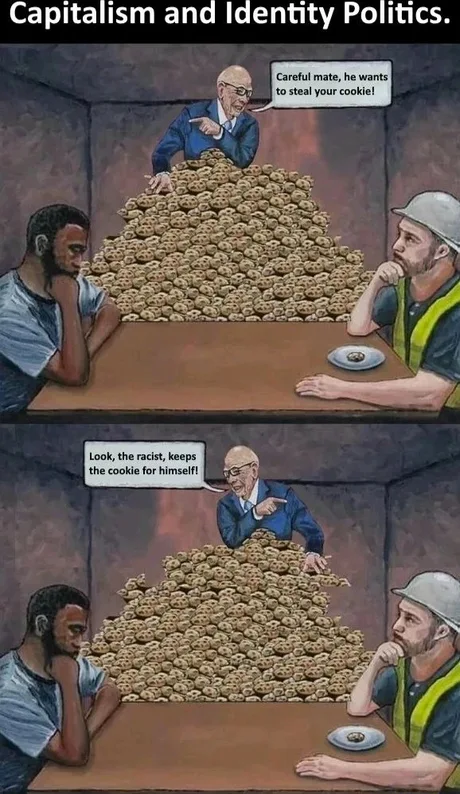
Under capitalism, the working class sells their labor-power to the capitalists on the market in exchange for wages, which they use to purchase means of subsistence required to survive.
National oppression is an intrinsic feature to the development of capitalism. The primitive accumulation of capital, slavery, and the expropriation of land and resources provided the material bedrock for white supremacy to emerge as a defining aspect of capitalism.
While the 1% are getting wealthier, the 99% remain obedient.
Divide and conquer until they own nothing and "are happy" !
#western politics#identity politics#political ideologies#capitalist hell#capitalist dystopia#capitalist bullshit#capitalist system#economics#classism#america#political#divide and conquer#divide and rule#history#wealth inequality#governance
2 notes
·
View notes
Text
Islam "Sebagai Ideologi"
Dan Politik
"Alat Perjuangan"
Sedikitnya ada 3 ideologi di dunia seperti kapitalis, liberal dan islam.
Ideologi digunakan oleh manusia sebagai pedoman dalam setiap lini kehidupan baik dari berfikir, beraktivitas dan sebagainya.
Banyak narasi dan paradigma yang timbul dimasyarakat indonesia seperti berikut,
Kata si fulan : " dakwah kok politik ? kalo dakwah ya dakwah saja ndak usah berpolitik
" Ah ngapain sih sok ikut-ikut politik? Politikan kotor "
" Kalo beragama ya beragama saja ndak usah sok ngatur-ngatur kehidupan orang, jangan sok suci"
Ohh, tentu dakwah politik, islam agama yang paling sempurna, agama yang mengatur semua lini kehidupan dari seluruh aspek yang ada. islam menjadi ideologi bagi pengikutnya dalam menjalani kehidupan dimuka bumi ini.
Kalo dilihat agama lain tidak seperti itu, ya biarin dan tentu saja hal ini dikarenakan agama lain bukanlah ideologi dikarenakan agama lain membahas hanya tentang urusan pribadi pengikutnya dan tuhannya saja.
Islam mempunyai sistem yang detail dan kaffah untuk umatnya dan teman-teman pasti pernah mendengar istilah ini "sistem ekonomi islam, sistem masyarakat islam, hukum islam dan bahkan sistem yang terkecil pun ada saat tidur, makan, ke wc dan sistem detail lainnya.
Seumur-umur hidup saya, tak pernah mendengar ada agama lain yang memiliki sistem yang sedetail itu.
Umat islam dituntut untuk berislam secara kaffah dimana umatnya melaksanakan semua lini kegiatan aktivitas dimuka bumi ini mengikuti semua yang ada pada islam itu sendiri termasuk juga dalam berpolitik jadi, umat islam tentu saja sangat dibolehkan dalam dakwahnya berpolitik jikalau, agama lain tidak berpolitik ya tidak apa-apa dikarenakan agama lain tak sesempurna agama islam.
"Jikalau ada diantara kita yang mengatakan dirinya islam tapi anti akan politik islam maka harus di pertanyakan keislamannya"
Pada hari ini orang-orang kafir telah putus asa untuk (mengalahkan) agamamu, sebab itu janganlah kamu takut kepada mereka, tetapi takutlah kepada-Ku. Pada hari ini telah Aku sempurnakan agamamu untukmu, dan telah Aku cukupkan nikmat-Ku bagimu, dan telah Aku ridhoi Islam sebagai agamamu.
(QS. Al-Ma'idah Ayat 3)
#islam#kisah#politik#bangsa#viralindonesia#islamophobia#political ideologies#kehidupan#my qoute#it's true#dakwah#indonesia#hidup#pemerintah#dunia#pemikiran#motivasi#negara#pemimpin#politics#islamdaily#islamabad#islamquotes#agama
22 notes
·
View notes
Text
Zionists claim that Zionism is antisemitism and that only they can decide what counts as antisemitism?
And this dosen't seem to anyone like they're looking for a loophole to do whatever they pin a label with great shock value to their opposers ?
Seriously?
3 notes
·
View notes
Text
Also, feel free to say what that political group/ political ideology means to you :)
#politics#political ideologies#republicans#conservatives#liberals#communists#socialists#anarchists#democrats#nationalists#syndicalists#polls#political#curiosity#selkie#selkie polls#generation#generational trauma#generation politics
5 notes
·
View notes
Text
What “fascism” means
My controversial belief is that it is actually really fucking important to educate yourself on the basics of, from lack of a better word, “philosophical” foundations of fascism. The fact that most people’s knowledge of it is limited to the aesthetics and crimes of the past fascist regimes is what allows modern fascists to strive and make themselves uncritically tolerated by just changing their name and denying their historical connections. It’s how dudes who are practically quoting Mussolini verbatim can go “you just call anyone you disagree with a fascist”. It’s how a fascist propagandist can be like “how can I be a fascist when I’m Jewish/gay/non-white/whatever?” and be treated seriously. It’s how more moderate right-wingers, conservatives and liberals alike, can genuinely claim that all the talk of a fascist renaissance is just conspiracy theories and fearmongering - after all, fascists are obviously fringe, because where did you last see a bunch of dudes goose-stepping with a swastika banner?
So, here’s a very basic explanation of fascism. It’s based on my own readings of fascist texts, as well as some compromising between the definitions and their boundaries proposed by various experts on the subject (one of which, I cannot emphasize it enough, I am not). I’m not gonna do a full bibliography on a Tumblr post, so I propose treating it as a simplified introduction to doing some of your own reading and developing your own opinions. The usual recommended starting point is Ur-Fascism by Umberto Eco, and even though in my personal opinion it focuses on some aspects of the ideology that are more common propaganda tactics than its actual core, it is a pretty good one. Anyway, point is, take me with a grain of salt, just like you should take anything written in some post on Tumblr (and, frankly, anything written anywhere else as well). That said, I’ll do my best to explain the basics, from one amateur to another, as uncontroversially as I can when talking about such a controversial subject.
Fascism is, above all else, about the cult of power. It’s about punishing and despising weakness, it’s about radical individualism, about survival of the fittest, about social darwinism. A man’s success is proof that he deserves his success. A man’s power is proof that he deserves his power. That is, according to fascists, the natural hierarchy that shapes the society to be healthy and pure.
Why, then, are fascists so keen on overthrowing governments? Because they believe degeneracy, a celebration and acceptance of weakness, has corrupted this natural order and allowed the weak to govern the strong. This degeneracy is usually (though not universally) associated with the industrial revolution, intellectualism, social welfare and the accomplishments of various (especially racial and sexual) civil rights movements, as well as the nebulous, antisemitic construct of a devious international Jewry - and you probably know from your history classes how they intend to combat that.
Since fascism is a cult of power, it emphasizes acting over thinking - as acting is a “stronger” activity. It glorifies violence and decisiveness, ruthlessness and unanimity. This is why a core idea of fascism is totalitarianism. This term was originally created to criticize the first, Italian fascism, but very quickly started to be used by the fascists themselves. In most systems, the state’s functions are supposed to be limited to some areas of social life, while what is known as private life should be untouchable by its power. The fascists do away with those limitations, and believe that the state, personified by a singular Leader (or, less often, collectively by the inner circle of a fascist party), has a right to interfere with whatever it wants to, and pass whatever laws it has the power to enforce, especially if their purpose is combating degeneracy. An important thing to note is that while historically the creation of this fascistic “total state” was often attempted by military dictatorships, that doesn’t necessarily have to be the case - fascists have no problems with using democratic or republican means to push their agenda. A cult of power is a cult of pragmatism, after all. Some fascists (like the Polish “endecja” or certain parts of the American “alt-right”) even genuinely believe in a form of totalitarian republicanism - those types, however, turn out to be really picky when it comes to who gets to vote.
Finally, there is the idea of a perpetual war. Humanity, according to fascists, is inherently divided into some kind of groups, which nature depends on the particular brand of fascism - most common types include races, nations, ethnicities, states, religions, any combination of the above. Sometimes these groups are equal at the starting point and you should be loyal to yours just because its yours, sometimes some of them are naturally superior to others. The important part is, the fascists claim that the primary function and the historical destiny of each of those groups is to destroy or subjugate all the other groups (either globally or in a given territory). Equal and peaceful coexistence is impossible, and any group that genuinely attempts it, will inevitably be backstabbed by the opponents they naively tried to tolerate. That is why militarism and expansionism are often (though not always) an important part of particular fascisms - the state’s purpose is to ensure the ultimate victory of the group it represents in the perpetual war. The people’s purpose is the same - that’s why it is necessary to subjugate them all under totalitarianism, so their private lives don’t distract them from their role in the perpetual war. And regardless of wether one of the groups was superior to all others from the start or not, one of them will prove its superiority when it proves its power and finally emerges victorious from the perpetual war.
As an ending note, I’d like to make clear that not all fascists use the exact words I have used above - in fact, very few of them do. “Totalitarianism” in particular became a dirty word due to the memory of horrific crimes comitted by the 20th century totalitarian regimes; it’s more likely to be implied by the lack of consideration for individual or social rights in fascist demands. You won’t see a lot of fascists talk about a “cult of power” or a “perpetual war”, either, and only the most blatant ones will utter the words like “social degeneracy” or “international Jewry”. They will instead talk about a “strong state”, “protecting our traditions”, “decadent youth”, “overpopulation”, and so on, and so forth. They will approppriate conservative, liberal and even leftist language in order to obfuscate their actual view of the world. And then there’s the fact that “fascist” and “non-fascist” isn’t really a neat binary - few things are when you actually look at them closely. There will be politicians, ideologues and activists, especially (but not exclusively) on the right, who will dip their fingers in fascism, but won’t go all the way down. It especially applies to the ones who do have some basic education on the topic and therefore are aware of how close they are to fascism - you may be a bigoted piece of trash and share most of fascist viewpoints, but still feel uncomfortable to admit to yourself that you’re on the same side as the fuckers who did the Holocaust. Yes, that last sentence is about Jordan Peterson (but not only about him).
And finally, remember that you can make an effort to understand an idea without sympathizing with it or empathizing with its followers. No matter how they justify and rationalize, and decorate their beliefs, if you decide to do some deeper research on the topic (which I, again, really do recommend), for the love of God, remember that this shit always leads in the same direction. It leads to the death camps, to the mustard gas bombings, to the pogroms and invasions, and forced euthanasia, and wholesale slaughter of human beings. It’s inherent to its core ideas. A cult of power means destroying the weak. Totalitarianism means tyranny and enslavement. Perpetual war means perpetual carnage. Death to all fascists. Take care.
5 notes
·
View notes